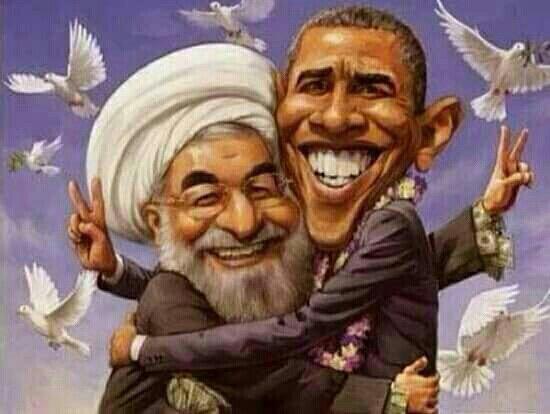Muslim Brotherhood’s ties to the Obama Administration
Slater Bakhtavar/Family Security Matters/September 23, 2016
This article is not meant to, or intended to be interpreted as a political endorsement, or lack thereof, of any political candidate. Family Security Matters takes no political point of view whatsoever.
“Allah is our objective. The Prophet is our leader. The Qur’an is our law. Jihad is our way. Dying in the way of Allah is our highest aspiration.”
The above is the motto of the Muslim Brotherhood, and organization founded in Egypt in 1928 for the express purpose of rebuilding human civilization in a form consistent with the customs of Shariah (Islamic) law and instituting a global Muslim paradise. The group’s own original bylaws leave little for interpretation, declaring: “The Islamic nation must be fully prepared to fight the tyrants and the enemies of Allah as a prelude to establishing an Islamic state.” As can be expected, then, the Brotherhood has been an enemy of the free world since its inception, engaging in such malignant acts as aligning itself with the National Socialist (Nazi) party in Germany during World War II, openly committing terrorist acts on its own, and more recently, supporting other terrorist organizations such as Hamas.
By any reasonable measure, the Muslim Brotherhood should be an unambiguous enemy of any American, regardless of political stripe. That is why it’s profoundly disturbing to consider that the group has steadily risen in influence within the United States, most particularly within the Democratic party. We see this broadly in the findings of a 2014 analysis that shows Islamist campaign donations overwhelmingly favor Democratic candidates over Republicans by a ratio of 12 to 1 since 9/11, but a specific and disturbing example can be found in the person of Huma Abedin, Vice Chairwoman of Hillary Clinton’s 2016 presidential campaign and reportedly longtime personal friend of Mrs. Clinton. Through her family, Abedin has a number of troubling ties to extremist Islam in general and the Muslim Brotherhood in particular. Her father is known to have founded the Journal of Muslim Minority Affairs, an academic publication that has been called a “sharia newspaper” by some. Her mother currently runs it, and Huma herself has worked as an editor on it.
Her brother introduces further suspicions of extremist loyalties. Abedin’s shady connections to the Muslim Brotherhood – which the Democratic party never fails to frantically deny or simply ignore – run so deep that five members of Congress wrote a letter in 2012 to the State Department Inspector General, listing her suspicious associations and contending that her family affinity with Islamic extremism disqualifies her from the sort of high level security clearance that would grant her access to someone like Hillary Clinton – an important and powerful person, and possible future President of the United States.
Huma Abedin’s role in American politics first rose to prominence when she served as a top adviser to then-Secretary of State Hillary Clinton (again, their friendship stretches back considerably). Since then, the Muslim Brotherhood has vastly strengthened its position within the US. Within that time period, the US government has reversed a standing policy against formal contact with the Brotherhood, went on channeling funds into Egypt despite the Brotherhood’s victory in post-Mubarak elections there, and hosted official Brotherhood delegations in the United States. Abedin’s level of involvement in these actions can be debated, but whether she is personally responsible or not, what is beyond question is that the Democratic party should not be coddling a known terrorist organization like this.
One would think the Democrats had learned their lesson when it comes to backing Muslim extremists. After all, that was their strategy in and immediately leading up to 1979, when they forsook the United States’ “stalwart ally” (as Ronald Reagan put it) in the Shah of Iran, effectively allowing the Islamic Revolution and the brutal, theocratic dictatorship that has followed ever since. Today Iran, once a generally friendly nation toward the United States and potential ally in the crucial Middle East, is a bitter enemy, its people strongly sympathetic to American ideals while its fundamentalist government denounces the US, and its absolute religious “Supreme Leader” works feverishly to acquire nuclear weapons.
In case it was not obvious, all of the above obviates the fact that it is in the best interests of the United States (and, ultimately, the people of the Middle East) to support secular leaders and causes. Especially in countries such as Iran and the northern part of the African continent, there are many younger and well educated people who are far less indoctrinated in the uncompromising religious dogma of the past than their elders. These are the people whom the West should be supporting, both abroad and at home – while being exquisitely careful to avoid allowing individuals like Huma Abedin to reach powerful positions within the United States.
The Muslim Brotherhood is an unambiguously dangerous organization with a shady and bloody past. It is imperative that the United States awake to the reality that this organization must be combated and avoided, not embraced, and that secular segments should be encouraged to flourish around the world – especially at home, and in the Middle East.
**Slater Bakhtavar is an attorney, journalist, author and political commentator. He is author of “Iran: The Green Movement”. He has appeared on hundreds of network radio shows, including G Gordon Liddy, Crosstalk America, Les in the Morning, NPR, Jim Bohannon Show and VOA.
http://www.familysecuritymatters.org/publications/detail/muslim-brotherhoods-ties-to-the-obama-administration?f=must_reads






















